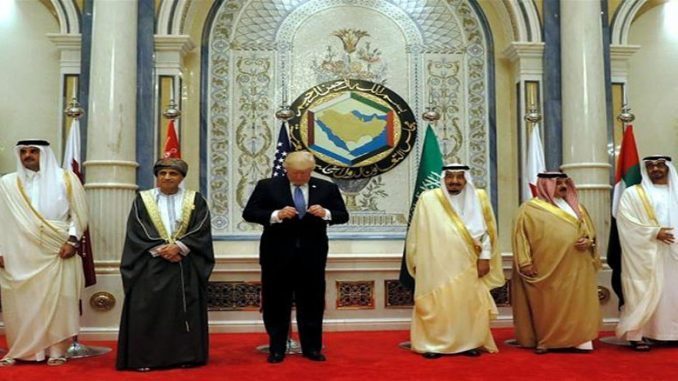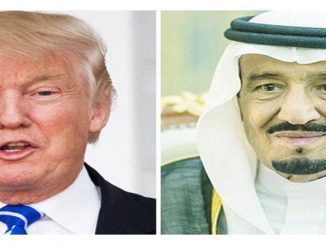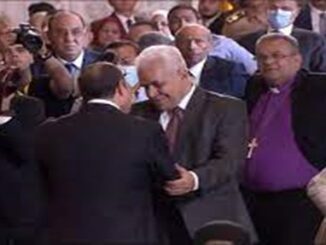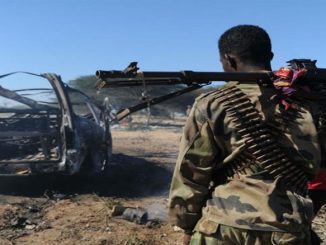
 Dr. Said Al-Haj*
Dr. Said Al-Haj*
There has been a remarkable correlation between media releases and developments in the Gulf crisis, from its very beginning, that press statements in this regard – in most cases – appear to be a good indicator for the crisis’ political track.
The level of press releases and the media discourse of the blockading countries (Saudi Arabia, UAE, Bahrain, and Egypt) during the early hours of the crisis were suggestive of such a high ceiling that, in our view, the scenario of military intervention in Qatar was most likely on the table. On the other hand, the withdrawal of the siege countries from the 13-demand list, and limiting them to six general principles, was an apparent evidence of a change in the course of the Gulf crisis, which was reflected by their position.
– In general, the crisis went through two main phases:
1- During the first stage, the blockading countries relied on the shock and surprise factor, hoping to reach a quick and complete surrender on the part of Qatar; or to intervene militarily for ending the crisis through removal of the Qatari government. However, this stage was contained by Doha with the help of several factors, notably Turkey’s decision to send its troops to Qatar, the US balanced position in addition to the positions of Iran and some European countries.
2- The second stage was characterized by both ‘low ceiling’ and ‘time span extension’, i.e., ‘no progress, no retreat’, as the two parties were adhering to their positions, with an implicit recognition of the need for a diplomatic solution after the crisis had passed – to a large extent, not completely – the possibility of carrying out a military intervention or staging an internal coup in Qatar.
The comment of the Emir of Kuwait yesterday (Sept. 7) at a joint press conference with the US President indicated the possibility of entering a new phase in the ongoing crisis characterized by political calm and stable media clash so far.
Sheikh Sabah Al-Ahmad Al-Sabah’s comments included fundamental points that have implied a new Kuwaiti “position” for the first time since the crisis began on June 5, including:
– The crisis was surprising.
– We foiled the idea of a military solution that was on the table.
– Qatar is ready for dialogue on the basis of the 13-demand list.
– Some of these demands can be solved.
– Other demands violate sovereignty, and therefore “even Kuwait” does not accept them.
If we view the implications of the Emir’s comments in light of the US President’s willingness for “mediation” in the Gulf crisis despite his previous statements, we could conclude that there are harbingers of a new / third phase in the crisis, characterized by solution through dialogue and negotiation. The new phase implies recognition of the embargo states that they are unable to impose their demands on Qatar; thus they desire to reach a solution through negotiations. Early signals of the third phase appeared in Riyadh’s acceptance of the Turkish President’s visit a few weeks ago and its implied connotations.
However, we are talking here about the harbingers of a new phase, not necessarily that it has already begun, or that it will start very soon because:
First, the media discourse by the four embargo countries after Emir of Kuwait’s statement seemed emotional, and attempted to hold Doha responsible for the failure and delay of a solution, especially in the press release issued by the four countries at the time.
Second, the idea of changing the Qatari regime is still in the mind of the blockading countries’ decision-maker, which appeared clearly in “Hajj mediation” a few days ago.
Third, getting off the tree after all this escalation, preconditions, and haughty rhetoric will be very difficult.
In terms of the balance of power, given the military, economic and geopolitical factors, the potentials of Qatar and those of the Quartet are incomparable, as the scale clearly tilts in favor of the four countries. However, Qatar has achieved a broad international sympathy due to its approach to managing the crisis, absorbing the early shock, showing remarkable internal cohesion, and receiving a regional support – publicly through Turkey and implicitly through Iran. In fact, the current change in the (influential) US discourse and the (mediating) Kuwaiti rhetoric signals a new variant in the crisis in favor of Doha.
Therefore, the ball is now in the court of the four blockading countries; and they have only three options:
1- Either to accept a solution through dialogue regardless of the extent of concessions that each party could offer,
2- To sustain the crisis indefinitely according to the same rules of the game,
3- Or to resort to catastrophic options that are no longer realistic or useful – unless there are new changes in regional and international situations, which has become quite unlikely.
Anyway, the rhetoric of the embargo countries after the period of jittery reaction – whether in the official political statements or the discourse of their affiliate media outlets – will be an important indicator of their future choices.
* Said Elhaj is a Palestinian doctor, writer, and a researcher in the Turkish issues. This article was published in the Egyptian Institute for Political and Strategic Studies (EIPSS)



